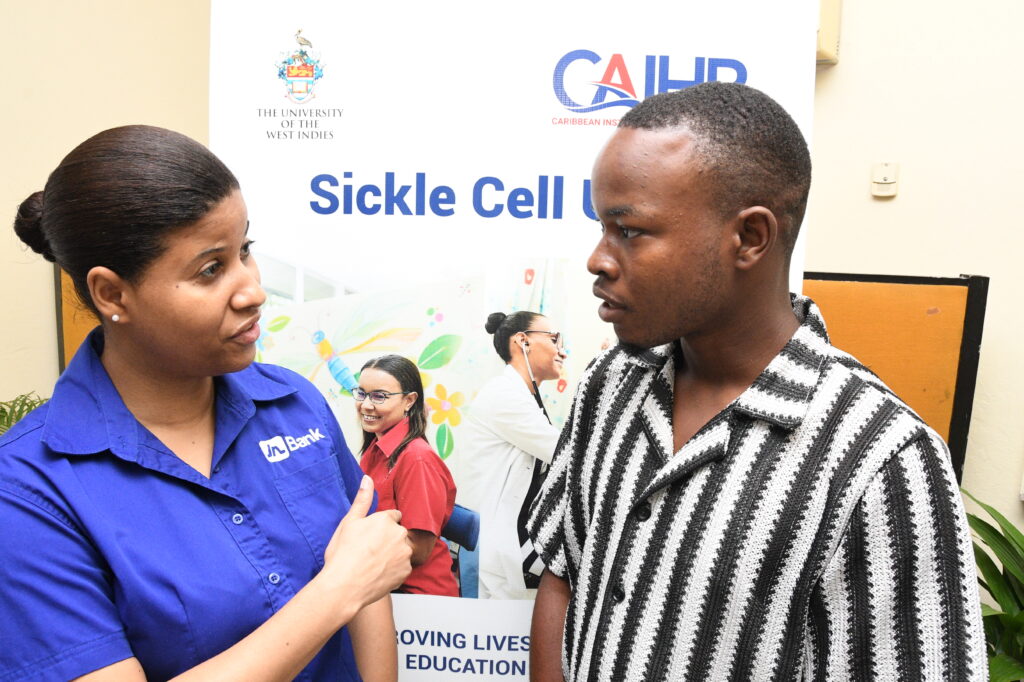

Richard Ffrench vividly recalls that while he was in first form at Papine High School in St Andrew, his mother asked him what he wanted for his birthday. Unlike the typical child his age, he requested a sewing machine so he could alter his own clothes and save money in the process.
“I taught myself [sewing] for two years until I reached ninth grade,” he said, adding that he sought to refine his skills by watching YouTube tutorials.
After leaving high school, he formalised his training by enrolling at the Garmex Academy where he pursued Fashion Designing Level Two. He subsequently upgraded the sewing machine to an industrial one, which plays an integral role in his business, Ivory Ja, which produces stylish clothing targeted at teenagers and young adults.
“Ivory Ja is a unique clothing brand that creates and makes people feel confident, bold and unstoppable. We specialise in streetwear, swimwear and activewear,” Ffrench said.
The clothing outlet is located at 80A Gordon Town Road in St Andrew, while the workshop, where he does his sewing, is in Mavis Bank. The business also maintains an active presence on Instagram and TikTok under the handle @ivory_ja. For the past 10 years, Ivory Ja has been in operation and currently employs one person.
Ffrench was one of 12 entrepreneurs living with sickle cell disease who benefited from business management training as part of the Sickle Cell Transformative and Empowerment Programme (STEP Forward), organised by the Sickle Cell Unit and the Caribbean Institute for Health Research at The University of the West Indies, Mona, recently.
The programme was created to provide participants with hands-on resources to build and sustain their businesses while dealing with the specific challenges that come with managing a chronic health condition.
The 26-year-old experiences a crisis two to three times a year, with each episode lasting up to three weeks, especially during the colder months. He pointed out that self-employment was his way out to make a living, as he would not have been able to maintain traditional employment working for someone.
Ffrench shared that in the early stages of his business, he often had to turn down promising opportunities or refer clients to other designers due to frequent health challenges. His illness would cause intense joint pain, leaving him unable to walk or sit for extended periods, making it difficult to meet production deadlines.
Despite the health challenges, he remains committed to pushing forward with the business even on days when he is not feeling well.
“I ride out the storm until the pain is gone while taking my medication,” he said.
Tabra-Kay Lindsay, sales relations specialist for JN Bank Small Business Loans, commends Ffrench for recognising and nurturing his talent from an early age, turning it into a viable business that now benefits him and his employees. She was a main speaker at the recent business management session by STEP Forward.
“If you have a natural skill or talent, don’t take it for granted. That ability could be the foundation of a successful business or a valuable source of extra income. Mr Ffrench’s story is a great example of what can happen when someone believes in their own potential and puts in the work to build on it.”
“At JN Bank Small Business Loans, we see firsthand how powerful it can be when individuals invest in their natural abilities. The key is to start where you are, use what you have, and be open to learning along the way,” she added.
She noted that many people tend to overlook their own talents, either because they seem too ordinary or because they have not seen others turn similar skills into success.
“Every big business started small. Whether it’s sewing, cooking, woodworking, or even repairing electronics, there is real potential to earn and grow. What matters most is having the courage to start and the discipline to keep going,” she advised.
Lindsay pointed out that since the Year 2000, JN Bank Small Business Loans has been providing start-up capital to micro and small entrepreneurs to finance the purchase of goods, equipment and tools, to manage operating costs or to expand existing businesses.
Dr Patrice Simmonds-Brooks, Programme Director for the STEP Forward initiative at the Sickle Cell Unit, pointed out that entrepreneurship offers a practical and empowering alternative for individuals living with sickle cell disease.
“Persons with sickle cell disease often face unique obstacles in conventional workspaces. Unpredictable health crises, frequent medical visits, and the physical toll of the disease can result in high absenteeism, which many employers struggle to accommodate. Sadly, this often leads to lost income or job termination. They are frequently misunderstood in the workplace. Their need for medical leave or flexible hours is often seen as unreliability when in fact it’s a necessity for survival,” she explained.
“Most work environments that lack adequate rest breaks, hydration access, or climate control can further compromise a patient’s health. Over time, the constant stress of trying to ‘keep up’ can result in mental burnout, physical crisis, or job loss,” Simmonds-Brooks added.






Comments